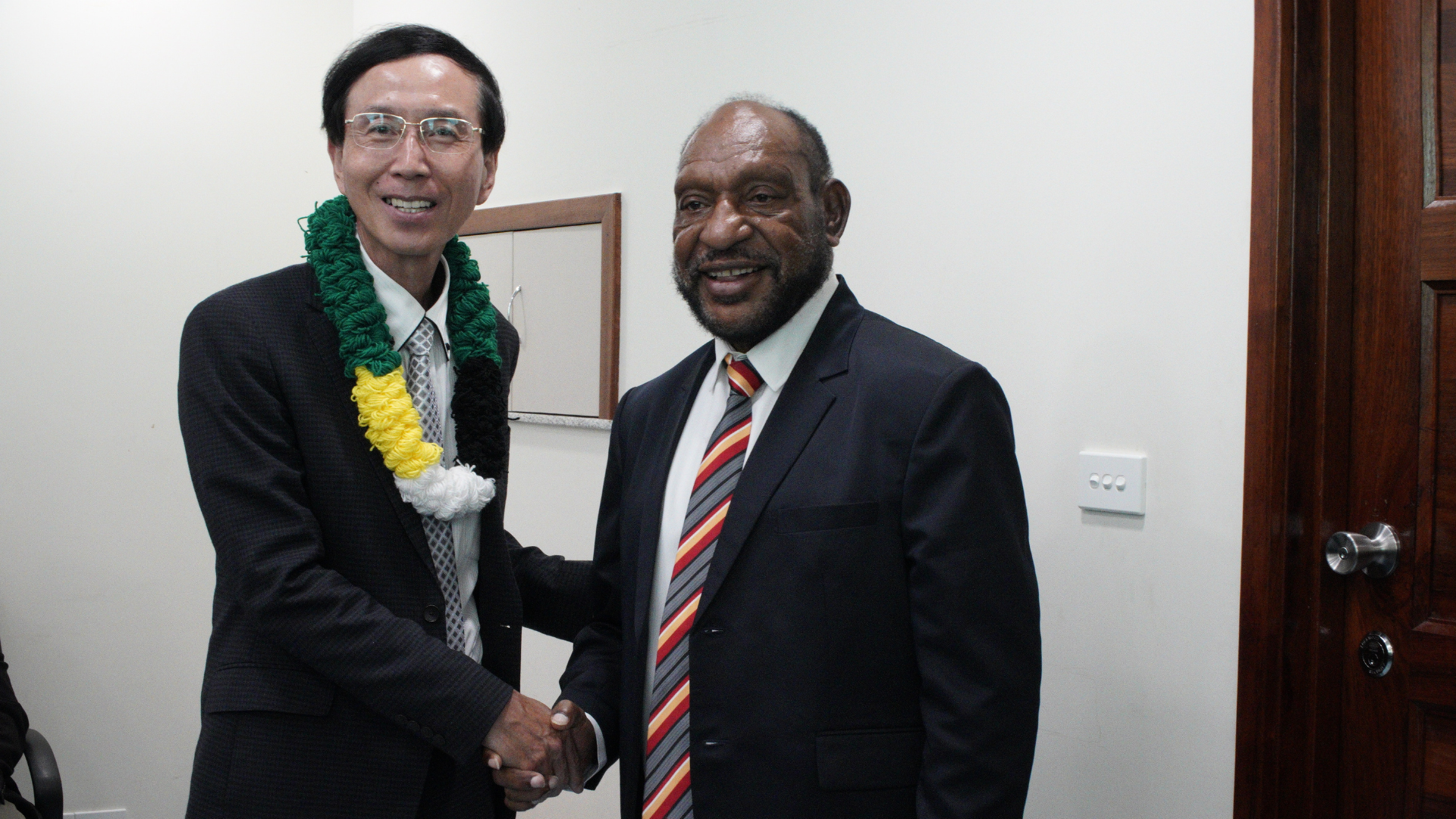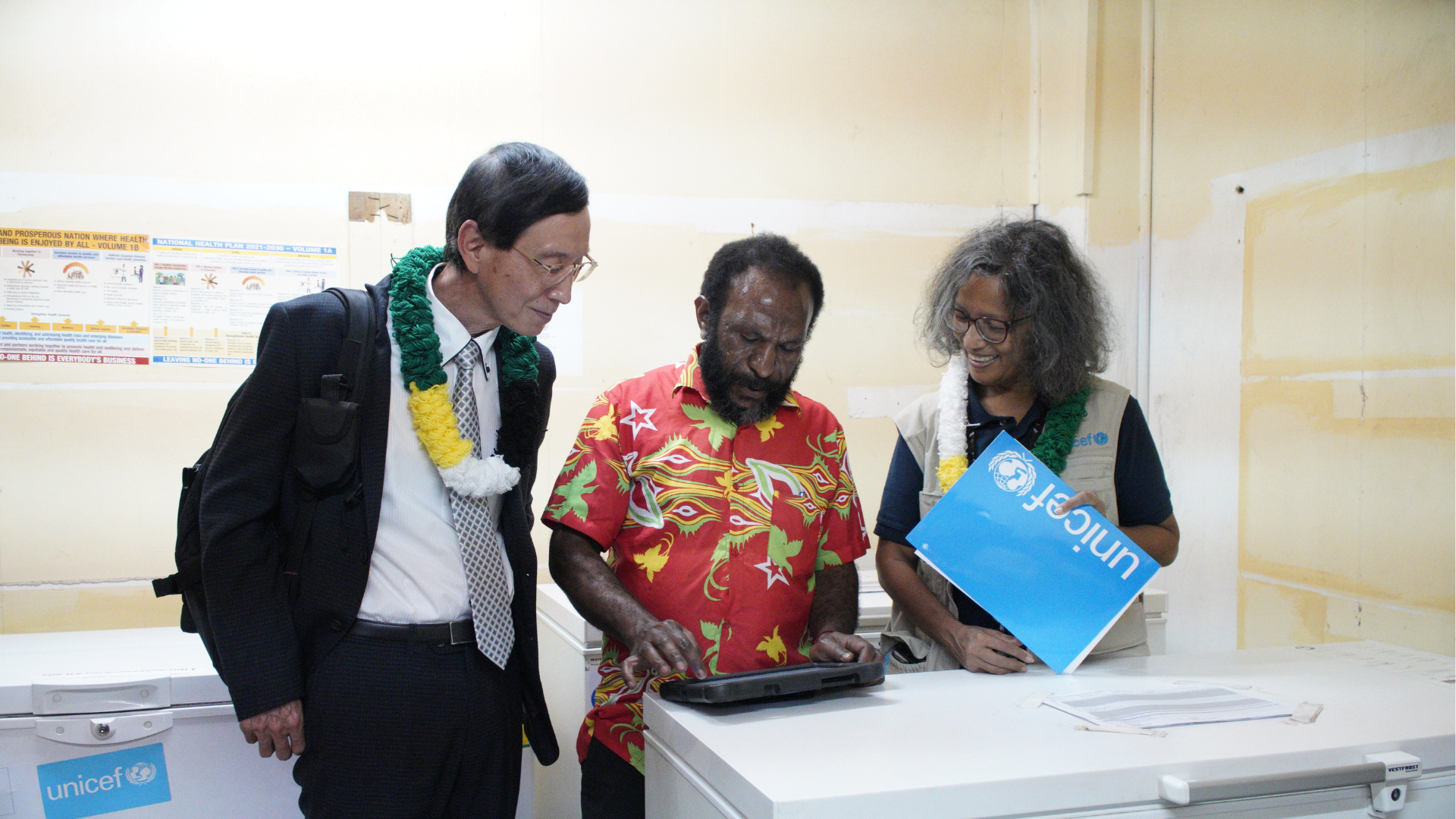In a show of enduring partnership and solidarity, Japan’s Ambassador to Papua New Guinea, His Excellency (H.E.) Hisanobu Mochizuki, visited Enga Province last week to observe the progress of recovery and development efforts supported by the Government of Japan and UNICEF.
The visit comes as Papua New Guinea celebrates its 50th anniversary of independence, marking five decades of cooperation between Japan, UNICEF, and the PNG Government in improving outcomes for children in areas such as health, education, water and sanitation (WASH), and emergency response.
Ambassador Mochizuki was joined by UNICEF Representative Dr. Veera Mendonca in touring communities affected by the devastating Mulitaka landslide of May 2024, which claimed lives and displaced thousands, including nearly 4,000 children.
During meetings with Enga Governor Sir Peter Ipatas and provincial health leaders, Ambassador Mochizuki discussed how Japan’s humanitarian aid—delivered swiftly through UNICEF—has been instrumental in both immediate relief and longer-term resilience-building.

Japan’s contribution enabled the rapid delivery of emergency supplies, including over 1,100 tarpaulins, 1,500 blankets, 500 solar lanterns, 2,000 water containers, and more than 100 hygiene kits tailored for women and children. The establishment of Child-Friendly Spaces provided psychosocial support and a sense of safety for children amid the crisis.
At Mulitaka Health Centre, the Ambassador viewed a new solar-powered water system funded through the partnership, which now ensures reliable and clean water access for patients and surrounding communities. Local schools, many of which were damaged or disrupted by the disaster, have since resumed operations with improved facilities including rainwater tanks, clean toilets, and hygiene programs.
Enga Provincial Health Authority CEO Dr. Vincent Pyakalyia praised the partnership’s focus on climate-resilient WASH infrastructure, while Director of Public Health Dr. Betty Koka noted the quick and impactful restoration of essential services.

“Thanks to the support from Japan and UNICEF, we’ve been able to restore critical services and begin building back stronger,” said Dr. Koka.
At the provincial vaccine store in Wabag, the Ambassador also examined Japan-supported efforts to strengthen PNG’s cold chain system for vaccines. Upgrades include solar-powered storage, the mSupply digital tracking system, and mobile vaccine carriers, helping address the nation’s low immunization coverage, currently at just 47 per cent.
Reflecting on the visit, Ambassador Mochizuki said: “It has been a privilege to witness the positive impact of our cooperation with UNICEF and the Government of Papua New Guinea. Japan remains committed to supporting the people of Enga and improving access to essential services, especially for the most vulnerable children.”
Governor Ipatas expressed deep appreciation for Japan’s continued support: “This partnership has helped transform tragedy into meaningful progress for our communities.”
UNICEF Representative Dr. Veera Mendonca underscored the significance of the long-standing collaboration.
“For decades, Japan has stood beside UNICEF and the Government of Papua New Guinea to support child survival, learning and protection,” she said. “In PNG’s jubilee year, this sustained, values-driven partnership is more meaningful than ever.”
She added that with children and young people making up over half of PNG’s population, investment in their health, education and protection is crucial for national development.
“Partnerships like the one we have with Japan are not short-term solutions. They are long-term investments in systems, communities, and in giving every child in PNG the best possible start in life,” she said.

